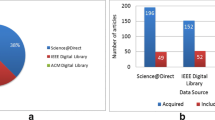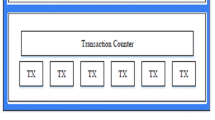Abstract
In a permissionless social network environment, it is difficult for a user to assess the trustworthiness of other users. Thus, trust management becomes a crucial issue for securing social activities. The conventional method for assessing trust involves an authority to identify fakes. However, generative AI is gradually reducing the ability to distinguish by producing vivid news or images. Additionally, modern social networks are becoming flatter and more diverse, making conventional trust management methods unfeasible. There is an urgent need to design a suitable blockchain consensus for decentralized trust management. In this paper, we propose a novel three-layer autonomous trust management model for online social users based on blockchain technology and group decision making. Instead of solving a hash puzzle, which consumes too much computational resources for social network users, this paper proposes a lightweight and verifiable blockchain consensus proof of trust for decentralized trust management. Furthermore, performance analysis and simulation results show that our model is valid and flexible for both synthetic networks and real social networks.











Similar content being viewed by others
Availability of data and materials
The datasets generated during and/or analyzed during the current study are available from the corresponding author on reasonable request.
References
Abdelghani W, Amous I, Zayani CA, Sèdes F, Roman-Jimenez G (2022) Dynamic and scalable multi-level trust management model for social internet of things. J Supercomput 78:8137–8193
Zarrin J, Wen Phang H, Babu Saheer L, Zarrin B (2021) Blockchain for decentralization of internet: prospects, trends, and challenges. Clust Comput 24:2841–2866
Jin J, Li Y, Zhong X, Zhai L (2015) Why users contribute knowledge to online communities: an empirical study of an online social Q &A community. Inf Manag 52:840–849
Jiang J et al (2019) Group-oriented task allocation for crowdsourcing in social networks. IEEE Trans Syst Man Cybern Syst 51:4417–4432
Yan Z, Wang H, Yang LT, Niemi V (2018) IEEE access special section editorial: trust management in pervasive social networking (TruPSN). IEEE Access 6:16851–16854
Alshehri MD, Hussain FK (2018) A centralized trust management mechanism for the Internet of Things (CTM-IoT). Springer, Berlin, pp 533–543
Xiao H, Sidhu N, Christianson B (2015) Guarantor and reputation based trust model for social internet of things, pp 600–605 (IEEE)
Sharma A, Pilli ES, Mazumdar AP, Gera P (2020) Towards trustworthy Internet of Things: a survey on Trust Management applications and schemes. Comput Commun 160:475–493
Ali-Eldin AM (2022) A hybrid trust computing approach for IoT using social similarity and machine learning. PLoS ONE 17:e0265658
Urena R, Chiclana F, Herrera-Viedma E (2020) DeciTrustNET: a graph based trust and reputation framework for social networks. Inf Fusion 61:101–112
Xu Y et al (2023) A decentralized trust management mechanism for crowdfunding. Inf Sci 638:118969
Amiri-Zarandi M, Dara RA, Fraser E (2022) Lbtm: a lightweight blockchain-based trust management system for social internet of things. J Supercomput 78:1–19
Visan A, Pop F, Cristea V (2011) Decentralized trust management in peer-to-peer systems, pp 232–239 (IEEE)
Arshad Q-u-A et al (2023) Blockchain-based decentralized trust management in IoT: systems, requirements and challenges. Complex Intell Syst 1–22
Nakamoto S (2008) Bitcoin: a peer-to-peer electronic cash system. Decent Bus Rev 21260
Salah K, Rehman MHU, Nizamuddin N, Al-Fuqaha A (2019) Blockchain for AI: review and open research challenges. IEEE Access 7:10127–10149
Lei A et al (2017) Blockchain-based dynamic key management for heterogeneous intelligent transportation systems. IEEE Internet Things J 4:1832–1843
Qu Z et al. (2023) Quantum detectable byzantine agreement for distributed data trust management in blockchain. Inf Sci
Zheng Z et al (2020) An overview on smart contracts: challenges, advances and platforms. Futur Gener Comput Syst 105:475–491
Kaur S, Chaturvedi S, Sharma A, Kar J (2021) A research survey on applications of consensus protocols in blockchain. Secur Commun Netw 2021:1–22
Golbeck J, Hendler J (2006) Inferring binary trust relationships in web-based social networks. ACM Trans Internet Technol 6:497–529
Sherchan W, Nepal S, Paris C (2013) A survey of trust in social networks. ACM Comput Surv 45:1–33
Cho J-H, Swami A, Chen R (2010) A survey on trust management for mobile ad hoc networks. IEEE Commun Surv Tutor 13:562–583
Wan J, Chen X, Du Y, Jia M (2019) Information propagation model based on hybrid social factors of opportunity, trust and motivation. Neurocomputing 333:169–184
Jiang N, Jie W, Li J, Liu X, Jin D (2022) Gatrust: A multi-aspect graph attention network model for trust assessment in OSNs. IEEE Trans Knowl Data Eng 35:5865–5878
Arquam M, Singh A, Sharma R (2021) A blockchain-based secured and trusted framework for information propagation on online social networks. Soc Netw Anal Min 11:49
Yang Z, Yang K, Lei L, Zheng K, Leung VC (2018) Blockchain-based decentralized trust management in vehicular networks. IEEE Internet Things J 6:1495–1505
Yan Z, Peng L, Feng W, Yang LT (2021) Social-chain: decentralized trust evaluation based on blockchain in pervasive social networking. ACM Trans Internet Technol 21:1–28
Liu Y et al (2022) A semi-centralized trust management model based on blockchain for data exchange in IoT system. IEEE Trans Serv Comput 16:858–871
Pal S, Hill A, Rabehaja T, Hitchens M (2021) A blockchain-based trust management framework with verifiable interactions. Comput Netw 200:108506
Manolache MA, Manolache S, Tapus N (2022) Decision making using the blockchain proof of authority consensus. Procedia Comput Sci 199:580–588
Tian Z, Li M, Qiu M, Sun Y, Su S (2019) Block-DEF: a secure digital evidence framework using blockchain. Inf Sci 491:151–165
Wood G et al (2014) Ethereum: a secure decentralised generalised transaction ledger. Ether Proj Yellow Pap 151:1–32
Lepore C et al (2020) A survey on blockchain consensus with a performance comparison of PoW, PoS and pure PoS. Mathematics 8:1782
Raya M, Papadimitratos P, Gligor VD, Hubaux JP (2008) On data-centric trust establishment in ephemeral ad hoc networks, pp 1238–1246 (IEEE)
Genç Y, Afacan E (2021) Design and implementation of an efficient elliptic curve digital signature algorithm (ECDSA), pp 1–6 (IEEE)
Shahsavari Y, Zhang K, Talhi C (2019) A theoretical model for fork analysis in the bitcoin network, pp 237–244 (IEEE)
Johnson RW (2022) Alternate forms of the one-way ANOVA f and Kruskal–Wallis test statistics. J Stat Data Sci Educ 30:82–85
Facebook wall posts network dataset—KONECT. https://github.com/ShanLu1984/KONECT-Social-Network-Datasets. Last accessed on 5-Feb-2024
Barabási A-L (2009) Scale-free networks: a decade and beyond. Science 325:412–413
Grigg I (2017) Eos-an introduction. White paper. https://whitepaperdatabase. com/eos-whitepaper
Ren J, Zhang D, He S, Zhang Y, Li T (2019) A survey on end-edge-cloud orchestrated network computing paradigms: transparent computing, mobile edge computing, fog computing, and cloudlet. ACM Comput Surv 52:1–36
Du Z et al (2020) Federated learning for vehicular internet of things: recent advances and open issues. IEEE Open J Comput Soc 1:45–61
Swain A, Salkuti SR, Swain K (2021) An optimized and decentralized energy provision system for smart cities. Energies 14:1451
El Faqir Y, Arroyo J, Hassan S (2020) An overview of decentralized autonomous organizations on the blockchain, pp 1–8
Beniiche A, Ebrahimzadeh A, Maier M (2021) The way of the DAO: toward decentralizing the tactile internet. IEEE Netw 35:190–197
Bellavitis C, Fisch C, Momtaz PP (2022) The rise of decentralized autonomous organizations (DAOs): a first empirical glimpse. Venture Capital, pp 1–17
Islam MR, Liu S, Wang X, Xu G (2020) Deep learning for misinformation detection on online social networks: a survey and new perspectives. Soc Netw Anal Min 10:1–20
Funding
This research was funded by the University of Macau (File No. MYRG2022-00162-FST and MYRG2019-00136-FST).
Author information
Authors and Affiliations
Contributions
QH contributed to conceptualization, methodology, software, and writing—original draft preparation. Y-WS contributed to supervision, writing—reviewing and editing, and funding acquisition.
Corresponding author
Ethics declarations
Ethical approval
Not applicable.
Conflict of interest
The authors have no Conflict of interest as defined by Springer, or other interests that might be perceived to influence the results and/or discussion reported in this paper.
Additional information
Publisher's Note
Springer Nature remains neutral with regard to jurisdictional claims in published maps and institutional affiliations.
Rights and permissions
Springer Nature or its licensor (e.g. a society or other partner) holds exclusive rights to this article under a publishing agreement with the author(s) or other rightsholder(s); author self-archiving of the accepted manuscript version of this article is solely governed by the terms of such publishing agreement and applicable law.
About this article
Cite this article
Huang, QA., Si, YW. Blockchain-based autonomous decentralized trust management for social network. J Supercomput (2024). https://doi.org/10.1007/s11227-024-06024-w
Accepted:
Published:
DOI: https://doi.org/10.1007/s11227-024-06024-w




